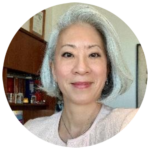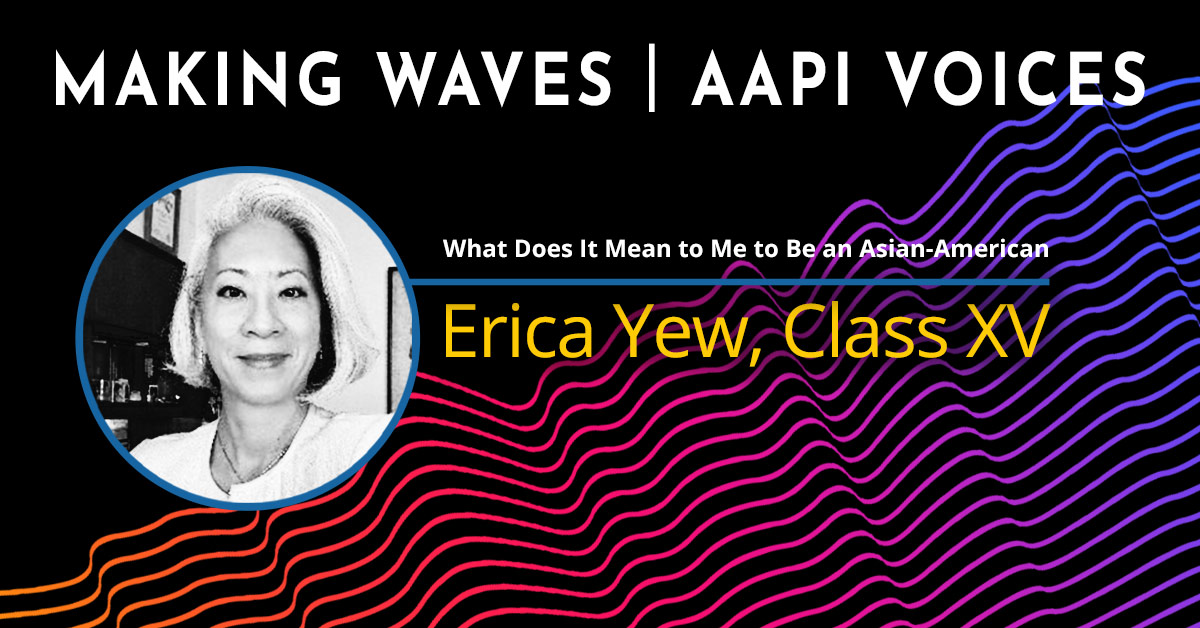What Does It Mean to Me to Be an Asian-American?
I was asked to write a “Board Boast” when I joined the California Judges Association Executive Board. This was to be published in the association e-newsletter to help people know me better. I am currently one of two Vice Presidents for the statewide organization that represents approximately 2,200 bench officers in California. The word “boast” threw me off as I was raised to believe that bragging was a mortal sin and definitely not acceptable behavior in our nuclear and extended families or in our culture. Thus I was loath to talk about my volunteer work or the awards that I have received, one of which was from ALF. In reading other board members’ boasts, I observed that people spoke about their achievements, their hobbies, and their children. What struck me is that my life outside of work is quite boring. I married my husband at the age of 43, and after years of fertility treatments and thousands of dollars, I decided to surrender my lifelong dream of motherhood. As my close friends know, my 15-pound mutt is my fur baby.
“I am a first-generation American, born the oldest child with five beloved siblings through my father’s three wives – that’s a story for another time. My mother was born in Shanghai, and my father in Tianjin.
We live in a tract of San Jose, a city with over 200 parks. Our home is a 60-second walk from an 11.7-acre well-used park that is heaven for our dog, plenty of wonderful neighbors, and loads of children buzzing around the playground, a swimming pool, and tennis courts. Besides the dog and stray craft projects, I can be found tending to my garden of flowering plants with an abundance of roses, gardenias, lavender, and wisteria, as well as fences covered in honeysuckle. After an arduous day in the courtroom, it is a joy to come home, step out of my Volvo, and smell the fragrances that surround our little house, with the dog springing up and down as he endearingly tries to engage me in play.
In contemplating my quiet existence, I realized how lucky I am and how much I owe to my grandparents and parents. I am a first-generation American, born the oldest child with five beloved siblings through my father’s three wives – that’s a story for another time. My mother was born in Shanghai, and my father in Tianjin. My maternal grandfather was a successful businessman. My paternal grandfather was a scholar and, through national competitions, was among the elite selected to attend university in the United States at Cornell. This was quite a feat in the early 1900s, and his achievement solidified my family’s focus on education. After university, this grandfather returned to China and worked as a well-placed civil servant. During the Japanese invasion of China from 1937 to 1945, my father’s family was situated in the midst of the war. My eldest uncle reminisced about my dad being whisked as a child into the basement during air raids, one time profusely bleeding from glass shattered by the bombing. My uncle recalls walking all night from his boarding school to his family home during the bombing and past dead bodies to make sure his family was still alive.
Both families left China to escape communist rule. My maternal grandfather moved his family and his employees out of China piecemeal between 1946 and 1948 before Mao Zedong formed the PRC in 1949. The country was in turmoil at this time. My paternal grandmother safeguarded her two youngest children and left China in 1947 for Taiwan. Her older children and my grandfather joined them later.
“They overcame difficulties in finding a place to live, knocking on apartment managers’ doors with vacancy signs only to learn that people would not rent to “Orientals.”
Eventually, both families settled in Hong Kong, where my parents met in high school. My mother loved the glamorous actress Arlene Dahl and chose “Arlene” as her Western name. After high school, my parents traveled to England for university. My mother was enrolled in nursing school by her parents, but she hated it and snuck out permanently one night with my father, who drove a motorcycle around town with my mother in the sidecar. She pursued her own passions, attending London University to study art and costume design and winning awards for her life drawings. My parents came to the U.S. with no money and no plans other than knowing that my mother had been accepted into art school in California. My father, who was always destined to be an engineer, was able to find work with Ampex and was later accepted by Stanford University’s graduate program, with Ampex paying his tuition.
My parents immigrated to the United States in 1955, where they married and started their family. My mom did not make it to art school and began taking care of her daughters while my father worked three jobs simultaneously. They overcame difficulties in finding a place to live, knocking on apartment managers’ doors with vacancy signs only to learn that people would not rent to “Orientals.” My father’s entrepreneurial spirit thrived in the burgeoning Silicon Valley. Through hard work and frugality, they moved every four years or so to an ever-better neighborhood and home.
My parents have three daughters—a judge, married to a law professor, a microbiology and molecular genetics professor married to a microbiology and molecular genetics professor, and a certified public accountant married to a certified public accountant. I told you that our lives are pretty boring. Contemplating this quiet life of mine, I reflected upon where my siblings and I would be if our grandparents had stayed in China. We would have lived through the Cultural Revolution, characterized by violence and chaos, when books were burned, educated people were stoned, starved, tortured, and imprisoned, universities were closed, and by some reports, several million people were massacred by their own communist government.
“The survey underscored the perpetual foreigner phenomenon that stymies so many Asian Americans. It made me pensive to think that in China, I was not seen as an American, and in the United States, some would never see me as an American.”
As a law professor, my husband, Tom Nazario, had the opportunity to teach summer school in many countries. One year, he taught in Shanghai. I visited him there, and I was asked to address his students as an American judge. The students’ English was impeccable, and they asked probing questions about the American legal system and the United States. One student said, “I hear there is racism against Chinese people in the United States. Is this true, and have you experienced racism?” I said it was true, and I had experienced much racism in America. The student then said, “If that is so, why wouldn’t you come home?”
That question stunned me for a moment. In response, I explained that I believed in the United States Constitution and felt very much an American. At that moment, internally, I recalled a Committee of 100 national survey that was published around that time. The poll asked Americans in several states if they would ever vote for a Chinese-American for President. The majority of people said they would never do so as they believed that a Chinese-American would be more loyal to China than the United States. The survey underscored the perpetual foreigner phenomenon that stymies so many Asian Americans. It made me pensive to think that in China, I was not seen as an American, and in the United States, some would never see me as an American. Nevertheless, in my heart, I am a true blue American sworn to uphold the Constitution of the United States and the Constitution of the State of California. And in my heart, I am eternally grateful to my grandparents and parents who left behind their lives, homes, possessions, and friendships to seek refuge in a country that would support a girl’s pursuit of education and a career of her choice; a country where she could become the first AAPI female judge in her county.
I live the American dream with our own home and a plot of dirt for my flowers in a country at peace where I have the luxury of leading a boring life with someone I love and our dog.

Erica Yew, ALF Class XV
About Making Waves | AAPI Voices
This article is part of the Making Waves – AAPI Voices project by ALF Silicon Valley’s AAPI Caucus. Through an ongoing series of letters and other forms of creative expression by ALF Senior Fellow guest contributors, we aim to share the experiences of Asian Americans & Pacific Islanders (AAPIs) with the broader ALF network. We are proud of AAPIs’ contributions to our multiracial society and believe we can help strengthen our community and democracy by sharing our stories to build understanding and solidarity.
View all current contributions to this series here.
The title of this project, Making Waves – AAPI Voices, is inspired by the book Making Waves, An Anthology of Writings By and About Asian American Women. We thank editor Dr. Elaine Kim and Asian Women United of California for their groundbreaking work and permission to use the title.
Tell us what you think. Want to start a dialogue? Contact Akemi Flynn.




